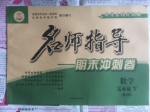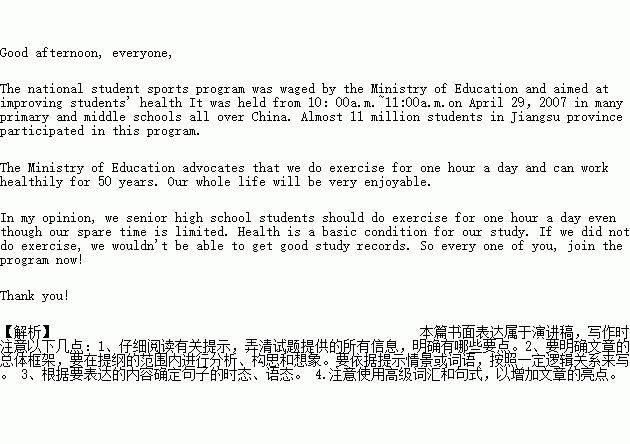题目内容
2015年4月5日上午10点到11点,全国亿万学生阳光体育活动在各地大中小学校同时进行, 1100万学生积极参与了这项活动。
教育部倡导学生:
1) 每天锻炼一小时 2) 健康工作五十年 3) 幸福生活一辈子
请你根据以上提示,用英语准备一份发言稿,向同学们讲述一下阳光体育活动的有关情况,并就高三学生(students of Senior Three)是否需要每天花一小时锻炼,谈谈你的看法及理由。
注意:发言稿应包括以上所有信息,要有适当发挥。
词数:120左右。
发言稿的开头和结尾已经写好,不计入总词数。
参考词汇:阳光体育活动——a national student sports program;
教育部——the Ministry of Education
Good afternoon, everyone,
The national student sports program was waged by the Ministry of Education and aimed at improving students’ health.
.
.
.
.
.
.
So every one of you, join the program now!
Thank you!
练习册系列答案
 名师指导期末冲刺卷系列答案
名师指导期末冲刺卷系列答案
相关题目


 增加细节,以使行文连贯
增加细节,以使行文连贯